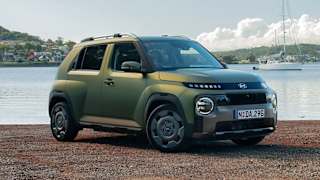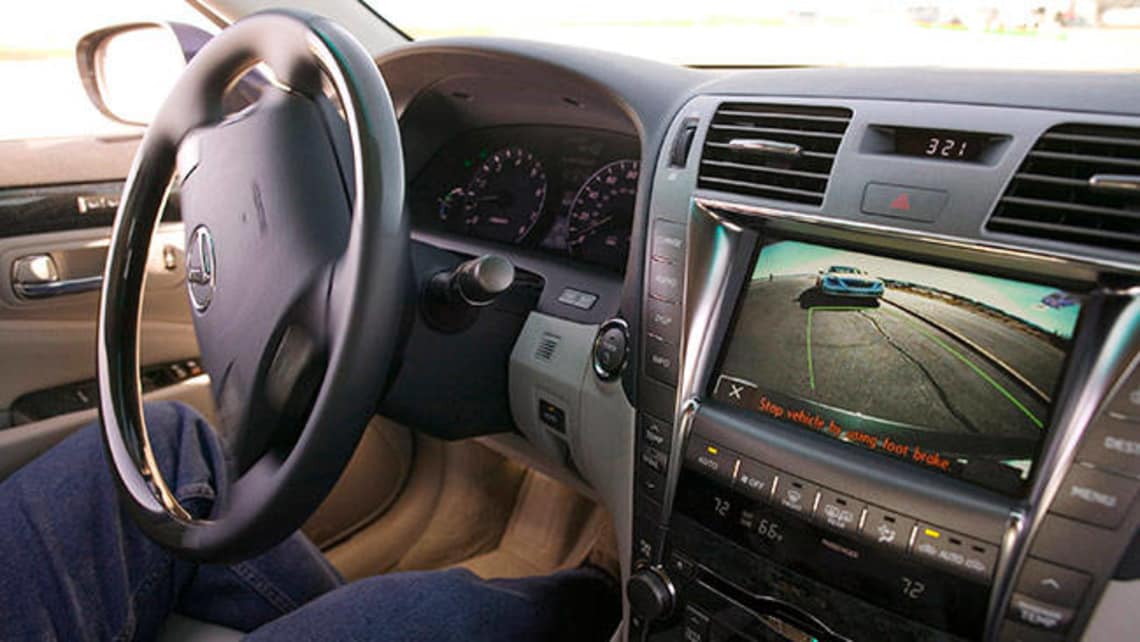
Self-parkers will give us more space
- Ford Focus
- Toyota Prius
- Toyota Prius C
- Ford Focus 2013
- Toyota Prius 2013
- Toyota Prius C 2013
- Audi News
- Ford News
- Rolls-Royce News
- Toyota News
- Audi Hatchback Range
- Ford Hatchback Range
- Toyota Hatchback Range
- Hatchback
- Audi
- Ford
- Rolls-Royce
- Toyota
- Technology
- Industry news
- Fun Stuff

The first one I tried, a Toyota Prius, could happily measure the gaps and reverse into place provided I took care of work on the brake and accelerator, and that's a familiar package now for a range of cars including the Ford Focus.
But there are also cars that can parallel park, and even reverse safely out into traffic using a range of radar-style sensors. Some people say the rise of self-parking cars is all about our increasing laziness and the ability of technology to take over the menial, or annoying, tasks in our day-to-day lives.
Others might, more controversially, draw a link between self parking cars and the inability of many women to do the job. Before you get too carried away, I should point out that this has now been scientifically proven by a study in the UK that I read about in a book called 'Why Men Don't Listen and Women Can't Read Maps'.
The book is by Allan Pease - the body language man - and his wife Barbara, and includes the parking research in a section devoted to women's relative lack of 'spatial awareness'. This apparently affects their ability to read maps, and park, but is offset by greater peripheral vision that makes it easier for women to spot things in a fridge than men.
But, moving along, I've also recently heard about a new incentive for self parking cars. It comes as Audi accelerates its work on cars that can valet park themselves, linking electronically to a system inside a carpark that identifies open slots and then guides the car into place. They can then be summoned out of hibernation as needed.
There is currently only one self-parking garage in the world, not surprisingly at Audi's headquarters in Germany, although work is progressing at other sites and on other cars. But the idea is that cars which can park themselves will free up extra space for parking. After all, when you park - often with other people in the car - you need clearance to open the doors for access. It's the same for head space, as well as clearance to open a hatchback boot.
But if the cars can park autonomously, think about all the extra space in the world. It's something that occurs to me nearly every week as I head to the airport or my local shopping centre and wonder where the space has gone. Cars are obviously getting larger, and SUVs are making an increasing land grab, but am I the only one who thinks that parking slots are being shrunken to get a bigger car - and cash - return on the available space?
Then again, there are cars that cannot be helped. In Britain - where 1950s garages designed for tiny Austins now look ludicrous in the face of even a humble Ford Fiesta - I was once driving a long-wheelbase Rolls-Royce Phantom. When I drove into the supermarket to buy some fruit I was shocked to discover that the brutally brilliant limousine actually required four standard-sized parking spots, as it was both too long and too wide for anything less.
This reporter is on Twitter: @paulwardgover








Comments